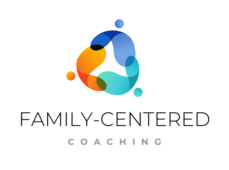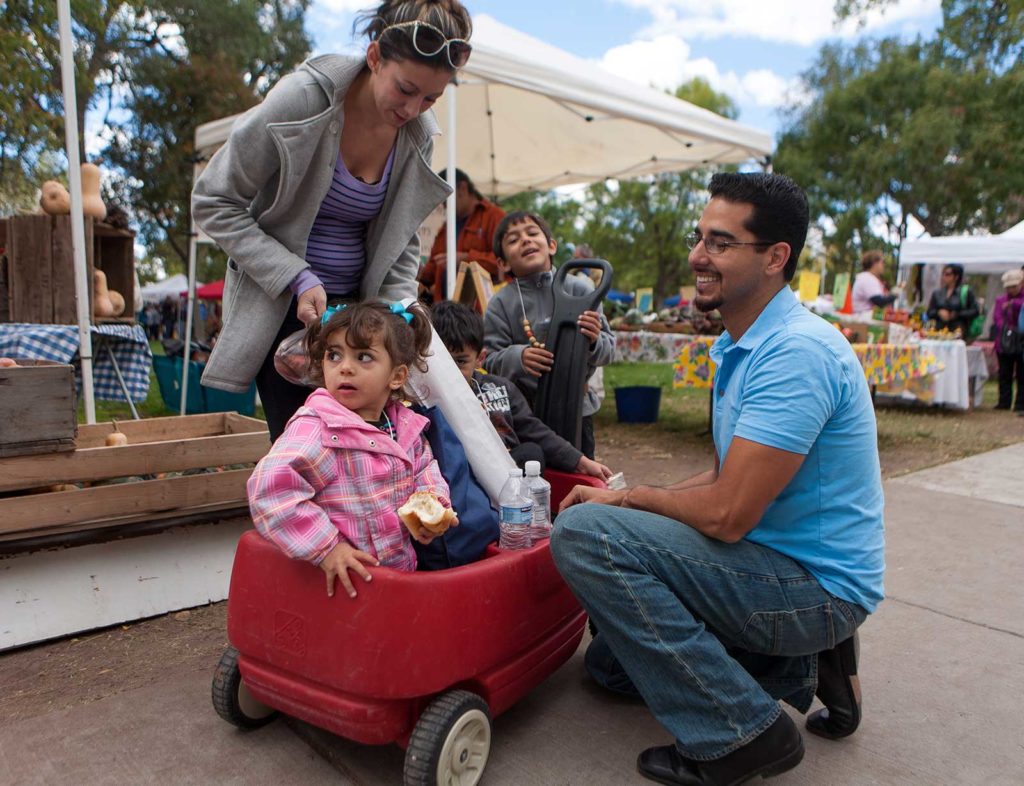Why do people continue to smoke despite research telling us it is harmful? Why do people reach for sweets when they are stressed? Behavioral economics helps explain why we behave the way we do, and uses science to improve how programs support families in setting and reaching their goals. Behavioral economics also highlights how experiencing poverty has a profound impact on how people make decisions, anticipate the future, and react to events.
Two Suitcases: An Analogy for Understanding the Impact of Scarcity

According to Ideas42, a behavioral science non-profit, “Poverty is an especially pernicious form of scarcity because it effectively puts families in a double bind: everyday tasks are more costly, and at the same time, the consequences of mistakes or misfortunes are more severe because families have no cushion to fall back on when an unexpected shock or minor error throws off their tenuous equilibrium. Though simplification and streamlining can moderate chronic poverty’s bandwidth tax by reducing the costs associated with accessing needed resources, these strategies may not address the second major tax on cognitive capacity—the absence of slack, or extra reserves of a resource (e.g. time or money) that families can draw on in case of emergency.
To understand the implications of living without slack, we turn to a metaphor, originally conceived by Eldar Shafir and Sendhil Mullainathan, that features two suitcases. Impange one suitcase is large and roomy, with plenty of space for clothing, toiletries, and any other potentially useful items. The other suitcase is small and compact, and fitting even the basics inside is a challenge. Packing the first suitcase is a breeze: it’s quick work because it doesn’t require the packer to make many mentally taxing decisions. Not sure whether you’ll need a coat? Throw it in just in case. Can’t decide between two pairs of shoes? Grab them both. The second suitcase is more challenging: its smaller size requires you to make tradeoffs. Because space is so limited, you can’t bring along anything inessential. You need to accurately predict what you’ll need and take the time and effort to pack all of those items (or at least those that fit!) inside the suitcase like pieces in a game of Tetris.
When you’re forced to pack so leanly, unforeseen events cause problems you are unprepared to address. Should the weather be different than the forecast predicted, or should you stain one of your few shirts, you’re out of luck.
This is a rather light metaphor for the very serious ways in which a lack of slack both levies a cognitive tax and leaves families vulnerable to relatively minor shocks. Living in poverty is similar to having a too-small suitcase in the sense that there’s no extra “space.” Income may barely cover expenses, or fail to cover them all, and there may be little to no emergency savings tucked away… Without slack, slight changes in income or expenses are likely to throw even a very carefully packed suitcase into disarray and leave families scrambling to put things back in place for months or even years.
The behaviors and decisions we may observe among people living with low incomes tell us much more about the condition of poverty itself than about the motives, skills, or character of the people experiencing it.”
Strategies to Make The Changes We Desire
Applying behavioral economics allows us to respond to the way people are instead of how we think they should be. Incorporating these lessons into Family-Centered Coaching supports coaches and participants to make changes we desire but sometimes find difficult to put into action. Get started by incorporating these strategies into your coaching practice:
- Reduce the cognitive burden on families: Make information clear, culturally relevant, and easy to read so that it is easy to act on. Break critical and complex steps into smaller, manageable pieces when coaching. For example, a goal of finding a job is made easier when the first step is to identify and call three employers with job openings.
- Reduce hassle factors: Put all critical information, such as coaching dates, phone numbers, and transportation options, in one place so that people don’t have to search for them. Use texting and video chat coaching for follow-up appointments to avoid long bus rides for appointments. Travel to a location near the family you are coaching so it is easier for them to get to you.
- Opt out: Develop ways that families automatically benefit from services unless they exercise the choice to opt out. For example, as families sign up for coaching, they might automatically receive text message reminders, unless they opt out of electronic notifications. It’s more likely they will get the text messages, which in turn means they are more likely to show up for appointments.
Environmental Modifications to Make Life Easier
Environmental modifications are essentially anything that makes it easier for us to live our daily lives and reach our goals. Many aspects of behavioral economics, such as opting out of services rather than opting in, are examples of environmental modifications. A participant doesn’t have to decide whether to receive the service, it happens automatically. Making small environmental modifications to your service delivery can help you to improve the effectiveness of your programs and coaching.
Ideas to get start making environmental modifications:
- Modifications at home:
- Work with families to make it easier to move through a given day.
- Create checklists for kids of what they need to do each morning to get out the door to school.
- Identify with participants a place near their front door where they can put all the essentials they need when they leave home.
- Program modifications:
- Redesign programs to make them easier for families to access and participate in
- Reduce the number of steps a participant needs to go through to become enrolled in a program.
- Locate services in one place so participants don’t have to travel.
- Break down program activities into small steps and make them clear and easy to follow.
- Use texting to remind families of appointments.
- Technology modifications:
- Identify ways that technology can make participants’ lives easier.
- Set reminders on phones for important tasks.
- Numerous phone apps help keep track of spending and to-do lists. Others, such as Woopmylife, which is being tested in public agencies, help set and track progress toward goals.
Resources on Behavioral Economics
The Prosperity Agenda provides these resources as the designated national administrator of Family-Centered Coaching.

